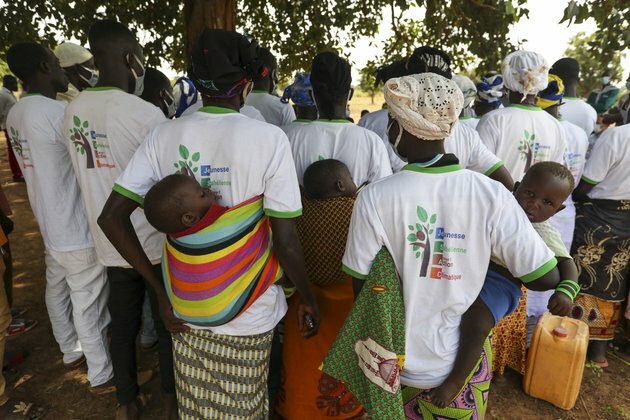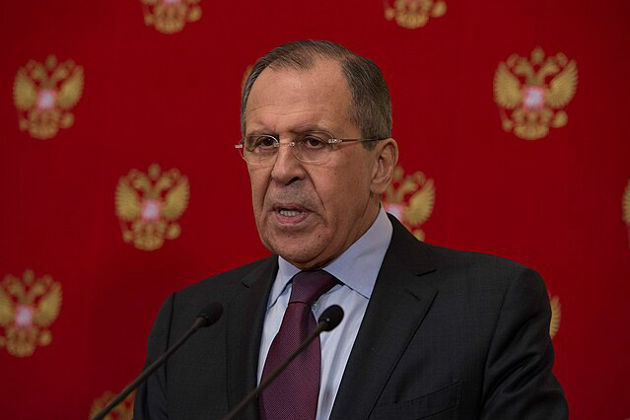In Burkina Faso healthcare is free only for some: why this is a problem
The Conversation
01 Dec 2021, 00:11 GMT+10

Maternal and child mortality remains a major public health problem in low- and middle-income countries. The rates are especially worrying in poor countries like Burkina Faso. Financial barriers to access care still prevent many families from getting the services they need, when needed, limiting future progress in reducing high mortality rates.
In 2006, Burkina Faso took various measures to improve financial accessibility to maternal and child healthcare. It introduced the policy of subsidising emergency obstetric and neonatal care. This reduced the price of reproductive healthcare services by 80%.
Ten years later, the country went further. It introduced a national free healthcare policy. This applies to all children younger than five - regardless of the reason for the consultation - and reproductive care such as deliveries, pre- and post-natal consultations and caesarean sections.
Studies in Burkina Faso and other sub-Saharan African countries have shown the positive impacts of free healthcare. These policies improve access to healthcare, decrease catastrophic health spending and reduce health inequities. Free access to healthcare reduces self-treatment practices as well as the proportion of home deliveries.
Evidence suggests that the abolition of direct payment improves certain morbidity indicators and reduces neonatal mortality.
Despite these numerous studies, little knowledge has been gathered on the ethical issues surrounding free policies. Exploring these issues is important. There have been reports of increased tensions because the eligibility criteria can be difficult to meet. This is especially the case in contexts of high vulnerability.
We conducted a study in a rural health district (Boulsa) of Burkina Faso to explore what healthcare personnel and beneficiaries thought about compliance with the eligibility criteria. We also wanted to understand the resulting ethical issues, and how health workers and patients coped with these.
Ethical issues
All study participants were aware of the free healthcare policy. But some ambiguities remained about the eligibility criteria. For example, some mothers were unsure whether they were entitled to free postpartum care. The official limit (free postpartum care up to 42 days after delivery) was difficult to understand.
Similarly, some caregivers thought that free care included children aged 5 years, while it only concerns children aged 0-59 months. There was also a lack of knowledge that free healthcare was universal for children, in other words it covered all types of care, but not for the mothers, for whom only reproductive healthcare services were free. These ambiguities led to situations where patients were denied free care when they thought they were entitled to it.
Health personnel and mothers told us about deliberate practices to extend the benefits of free care to people who were not eligible.
One of the most commonly reported practices was to hide the exact age of children. This practice sometimes resulted in impersonation, when identification documents of another child under 5 were brought in as proof of age.
Another example was using an eligible person to receive a free consultation or medication for the benefit of someone else. Also, beneficiaries sometimes went to several different health centres to accumulate a larger supply of drugs, either to treat other family members or to build up a stockpile of drugs that could be used later.
These practices are risky because the treatment given to one person is not necessarily the same as the treatment that another family member should have. However, they are justified by the economic vulnerability of the households. Many women who are the primary caregivers have no control over the household's finances.
Moreover, the ineligibility of older children raises ethical issues.
Healthcare workers knew these issues. They saw the lack of agency of the beneficiaries and were sensitive to the households' economic vulnerability. This situation placed them in an ethical dilemma: they had a duty to treat and relieve the suffering of patients, but also to ensure that the official guidelines issued by the Ministry of Health were respected.
Clinicians were confronted with these dilemmas in an even more blatant manner since they often resided in the community and shared the living conditions of its members.
Healthcare workers found various ways to alleviate these ethical tensions and avoid conflicts with the community. They tried to make people aware of the dangers of giving medications to people other than those for whom they were prescribed, and they were flexible about cut-off points for eligibility. They adapted their procedures to limit circumventing practices, for example by directly observing the treatment administration and ensuring a closer follow-up of the patients.
Remaining gaps
Access to healthcare has improved for a significant proportion of the Burkinabe population. But financial barriers remain for those who are not eligible. This raises ethical concerns for caregivers in the most vulnerable households and for healthcare providers.
Practices and medical procedures were adapted to reconcile these tensions surrounding the eligibility criteria. These resulted in a local reinvention of the free healthcare policy. This made it more effective in real world conditions.
The partial removal of user fees is better than no removal at all, which raises even more important ethical issues. However, it is necessary to realise that the cost burden for healthcare has not evaporated for Burkinabe households. Rather, it has shifted to other categories of household members who are overlooked and continue to be ineligible for many public health interventions, such as children over five years old.
Authors: Thomas Druetz - Assistant Professor of Global Health, UniversitУТЉ de MontrУТЉal | Frank Bicaba - Researcher and PhD candidate, Aix-Marseille UniversitУТЉ (AMU) 
 Share
Share
 Tweet
Tweet
 Share
Share
 Flip
Flip
 Email
Email
Watch latest videos
Subscribe and Follow
Get a daily dose of Israel Herald news through our daily email, its complimentary and keeps you fully up to date with world and business news as well.
News RELEASES
Publish news of your business, community or sports group, personnel appointments, major event and more by submitting a news release to Israel Herald.
More InformationInternational
SectionMoscow removes Taliban from banned list, grants official status
MOSCOW, Russia: This week, Russia became the first country to officially recognize the Taliban as the government of Afghanistan since...
Netanyahu vows 'No Hamas' in postwar Gaza amid peace talks
CAIRO, Egypt: This week, both Hamas and Israel shared their views ahead of expected peace talks about a new U.S.-backed ceasefire plan....
US sends message by publicizing visa ban on UK punk-rap band
WASHINGTON, D.C.: The Trump administration has made public a visa decision that would usually be kept private. It did this to send...
Tragedy in Spain: Diogo Jota and his brother die in car accident
MADRID, Spain: Liverpool footballer Diogo Jota and his younger brother, André Silva, have died in a car accident in Spain. Spanish...
Early heatwave grips Europe, leaving 8 dead and nations on alert
LONDON, U.K.: An unrelenting heatwave sweeping across Europe has pushed early summer temperatures to historic highs, triggering deadly...
U.S. military, China, Russia in Space race
President Donald Trump's plans to build a space-based Golden Dome missile defense shield have drawn immediate criticism from China,...
Business
SectionUS debt limit raised, but spending bill fuels fiscal concerns
NEW YORK CITY, New York: With just weeks to spare before a potential government default, U.S. lawmakers passed a sweeping tax and spending...
Shein hit with 40 million euro fine in France over deceptive discounts
PARIS, France: Fast-fashion giant Shein has been fined 40 million euros by France's antitrust authority over deceptive discount practices...
Meta hires SSI CEO Gross as AI race intensifies among tech giants
PALO ALTO/TEL AVIV: The battle for top AI talent has claimed another high-profile casualty—this time at Safe Superintelligence (SSI),...
Engine defect prompts Nissan to recall over 443,000 vehicles
FRANKLIN, Tennessee: Hundreds of thousands of Nissan and Infiniti vehicles are being recalled across the United States due to a potential...
Microsoft trims jobs to manage soaring AI infrastructure costs
REDMOND, Washington: Microsoft is the latest tech giant to announce significant job cuts, as the financial strain of building next-generation...
Stocks worldwide struggle to make ground Friday with Wall Street closed
LONDON UK - U.S. stock markets were closed on Friday for Independence Day. Global Forex Markets Wrap Up Friday with Greeback Comeback...













